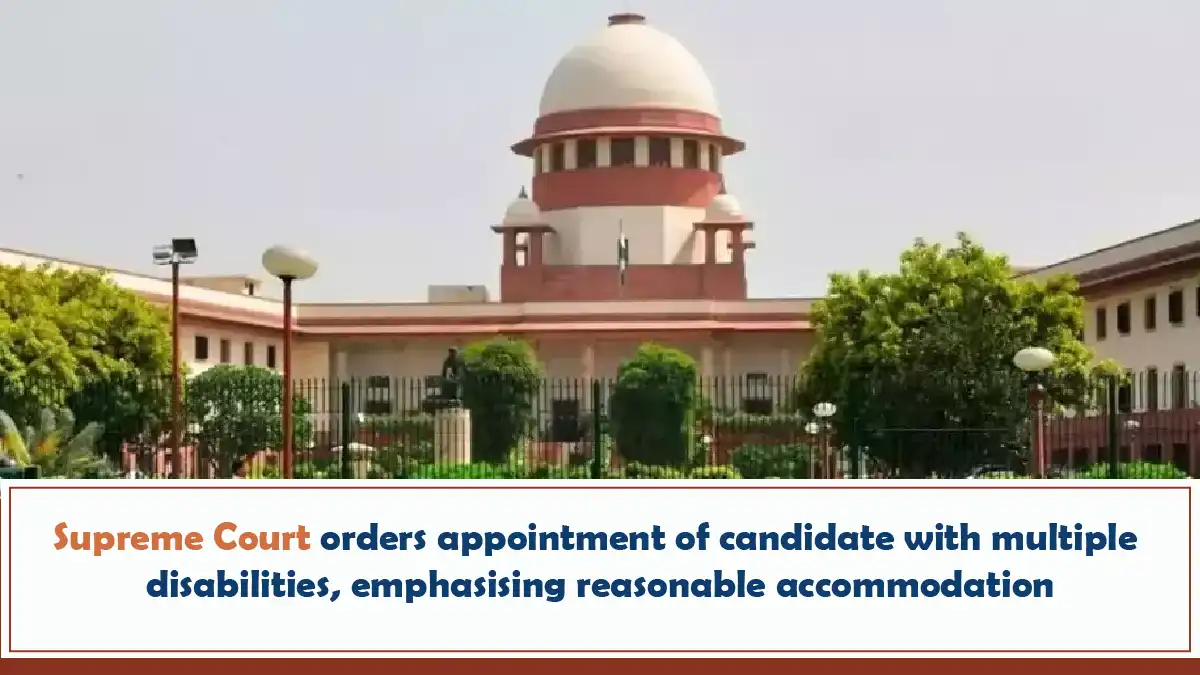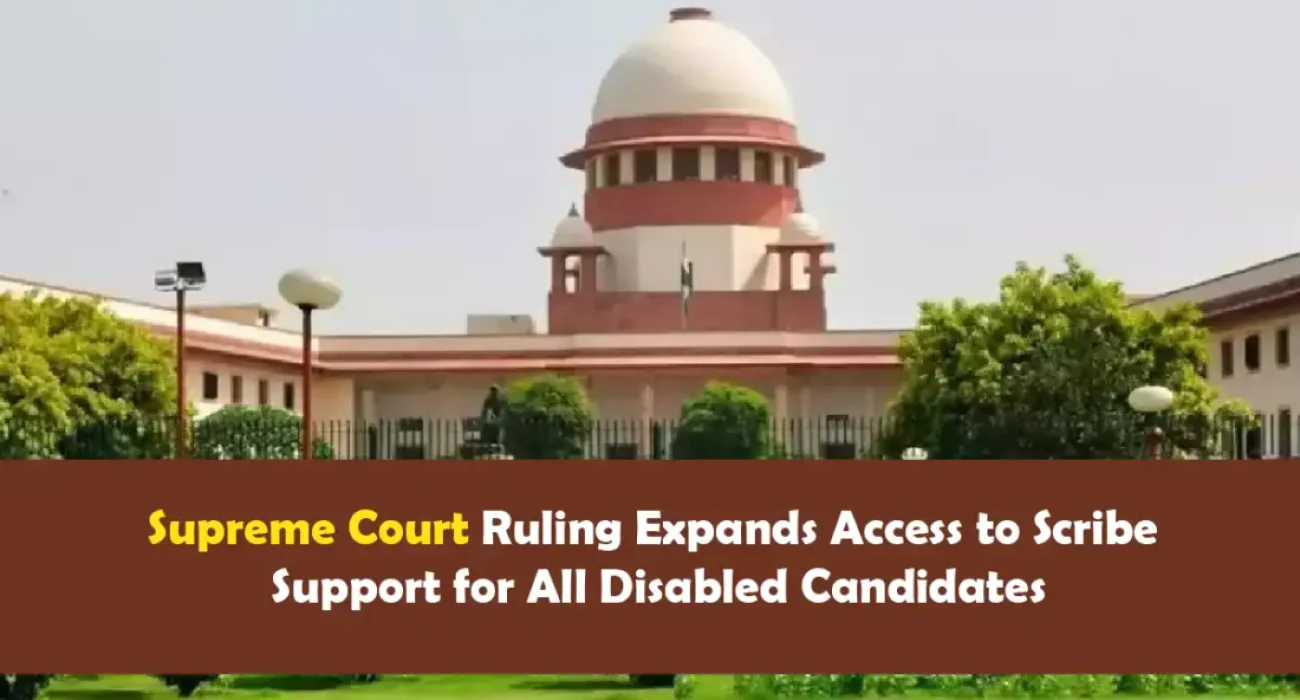

Table of Contents
ToggleThe petitioner, suffering from Focal Hand Dystonia (a neurological disorder), filed a writ petition challenging the denial of the facility of a scribe and compensatory time during exams by various examination bodies, including the Institute of Banking Personnel Selection, State Bank of India, Staff Selection Commission, Bihar Staff Selection Commission, and the Union of India through the Department of Empowerment of Persons with Disabilities. The petitioner, with a permanent disability assessed at 25%, was denied accommodations that were typically offered to candidates with benchmark disabilities (those with a disability of 40% or more), citing the restrictive nature of existing guidelines.
The grievance stemmed from the exclusionary provisions found in the Office Memorandum (OM) issued on August 10, 2022, by the Ministry of Social Justice and Empowerment, which continued to limit the availability of scribe facilities to only those candidates with benchmark disabilities. The petitioner’s challenge sought a broader interpretation of the Rights of Persons with Disabilities Act, 2016 (RPwD Act) to include all candidates with disabilities, regardless of whether they met the 40% threshold.
The petitioner contended that the current guidelines, including those in the 2022 OM, were discriminatory, as they failed to extend the benefits of a scribe and compensatory time to candidates with disabilities who did not meet the 40% benchmark. The petitioner argued that the denial of these accommodations violated the principles set out in the Supreme Court’s previous rulings, specifically in Vikas Kumar v. UPSC (2021), where the Court ruled that benchmark disability is not a precondition for receiving a scribe. The petitioner further contended that the OM did not provide for other essential accommodations, such as the option for alternative examination modes like large print, Braille, or audio recording, which could be easily implemented with available technology.
The petitioner also criticized the absence of a grievance redressal mechanism for instances where candidates were denied accommodations. The absence of such provisions hindered candidates from effectively asserting their rights.
The respondents, represented by the Ministry of Social Justice and Empowerment, defended the 2022 Office Memorandum, asserting that it was in compliance with the Supreme Court’s earlier judgments, particularly the Vikas Kumar case. They argued that the guidelines were designed based on expert recommendations and aimed to offer accommodations to candidates with disabilities who had difficulty in writing, primarily those with a benchmark disability. The respondents contended that the OM’s provisions, such as the requirement of a certificate from a government medical authority to verify a candidate’s need for a scribe, were appropriate and aligned with the legal framework.
Furthermore, the respondents maintained that the facilities provided under the OM were adequate, and any extension beyond the 40% benchmark would unnecessarily complicate the examination process.
The Supreme Court, in its judgment, reiterated the principles established in Vikas Kumar v. UPSC (2021) and held that the facility of a scribe and compensatory time should not be restricted to candidates with benchmark disabilities alone. The Court observed that such restrictions violated the rights of disabled candidates and were inconsistent with the inclusive intent of the RPwD Act, 2016. The Court emphasized the importance of reasonable accommodation, which is essential to ensure equality for all persons with disabilities, regardless of the severity or nature of their disability.
The Court noted that the guidelines issued in the 2022 OM did not adequately reflect the inclusive principles enshrined in the RPwD Act. The Court pointed out that the failure to extend necessary accommodations to candidates with disabilities not meeting the 40% threshold could be viewed as discriminatory. The Court also observed that the exclusionary nature of the OM, especially regarding the limited scope of accommodations (such as only providing scribe and compensatory time), ignored other feasible alternatives like technological aids for typing answers, which could alleviate the need for a scribe altogether.
Additionally, the Court noted the lack of a grievance redressal mechanism, which hindered disabled candidates from seeking recourse in cases where their rights were denied.
Following the principles set forth in the Vikas Kumar case, the Court directed the respondents to revise the 2022 Office Memorandum, removing the restriction that limited accommodations to candidates with benchmark disabilities. The Court ordered that all candidates with disabilities, irrespective of whether their disability met the 40% threshold, should be provided with reasonable accommodations, including the facility of a scribe, compensatory time, and other necessary support.
The Court also mandated that the respondents issue fresh guidelines to include additional accommodations such as the option to choose alternative examination modes (e.g., Braille, large print, audio recording) and ensure that all examination centers were physically accessible and equipped to accommodate disabled candidates. A grievance redressal portal was to be established to address any violations of the guidelines and allow candidates to resolve issues before approaching the courts.
Furthermore, the Court directed that the guidelines should be applied uniformly by all examination bodies and recruitment agencies. The Court also emphasized the need for periodic sensitization and training of examination authorities to ensure that the principles of reasonable accommodation were effectively implemented.
Directions:
The case was adjourned for compliance reporting after two months.
Credits: Deeksha Rai
IAW resources
Browse our help directory